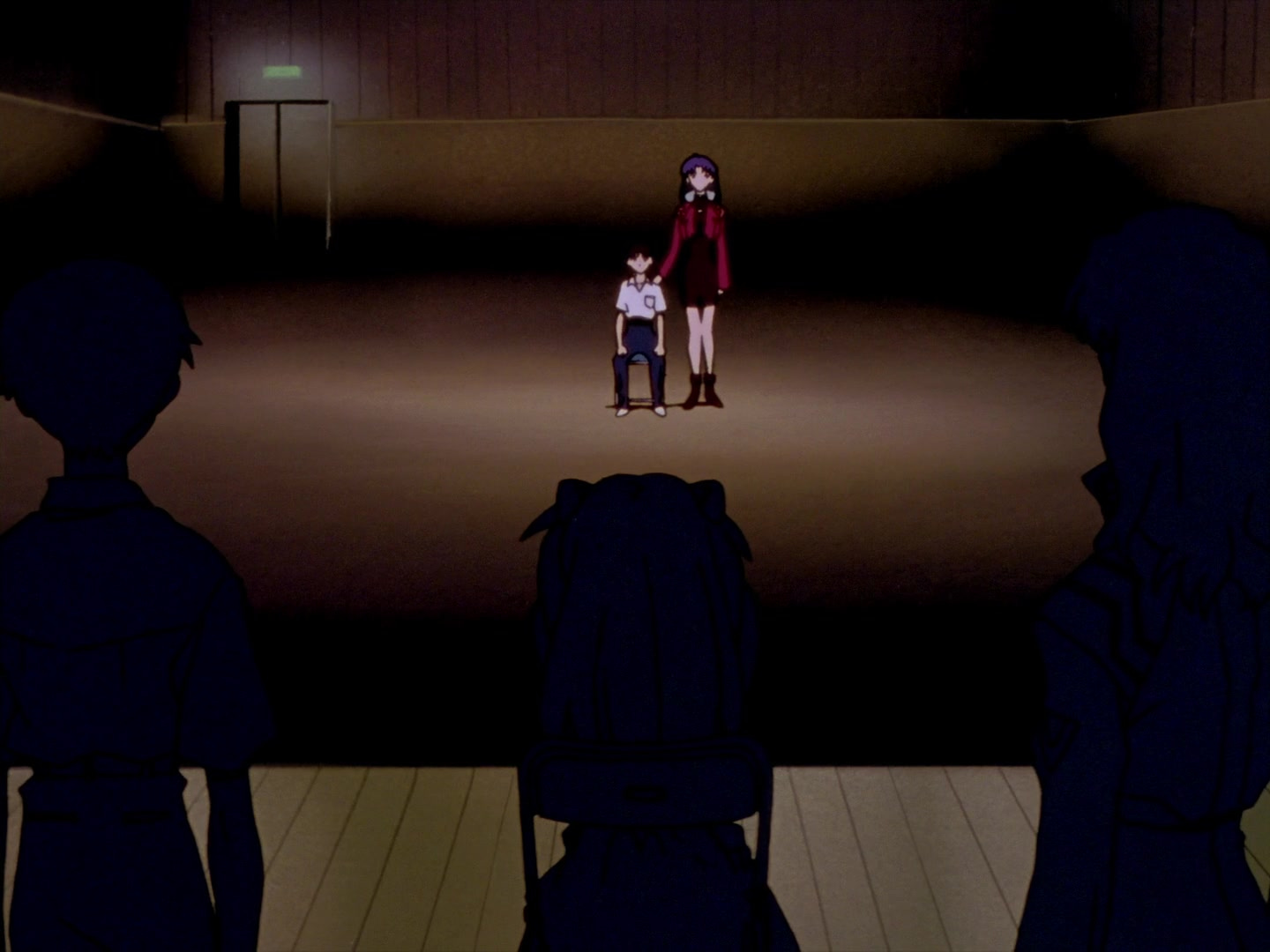this is my heart inside your heart
neon genesis evangelion (episode twenty-five, "do you love me?")
A while ago I was trying to describe the Evangelion phenomenon to a friend of mine, and I said something like “imagine if Twin Peaks was so popular and such a huge success that we were having Twin Peaks commemorative happy meals decades later. But also, it’s still absolutely Twin Peaks! It’s not even slightly less odd.”
The last two episodes of Evangelion are where it really and truly merits this comparison. This is where the show is really trying to communicate, as directly as possible, an internal experience. In whatever triage of available time and resources created these episodes, a decision was made to value character and theme over satisfyingly closing the mechanics of the story. I think this was the right call.
And to me, the TV show is a complete object that does not require any of the rest of the stuff that came later. But it is true that I never had the experience of watching these last episodes without knowing a huge amount of other material …


